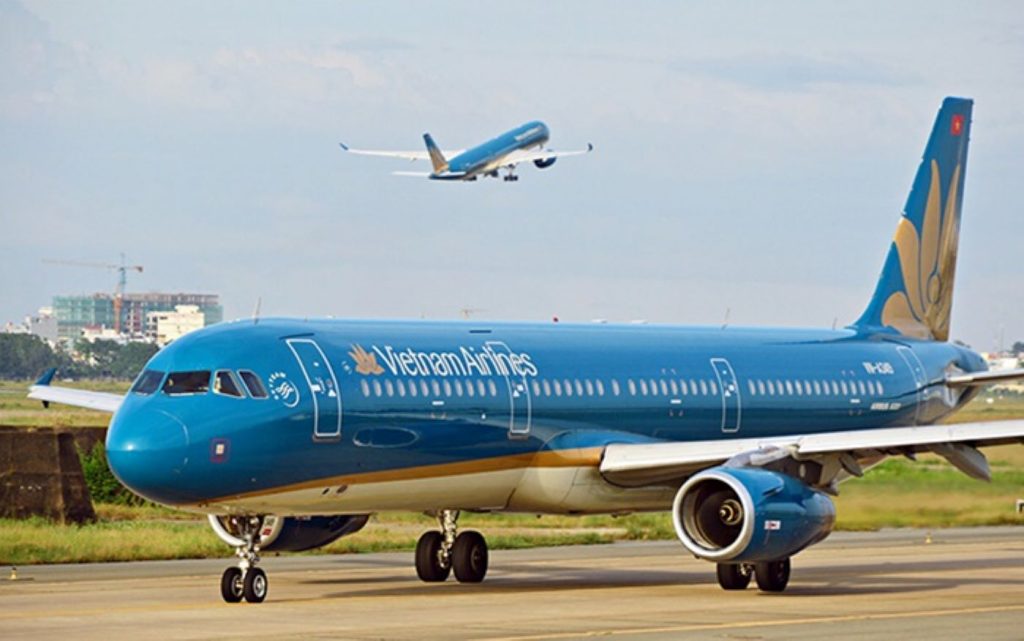Has Vietnam Airlines’ financial health restored to a safe level?
Vietnam Airlines Corporation (VNA)’s production and business status has improved in recent years as a result of its own efforts and state-sponsored solutions. However, VNA continues to face numerous challenges as a result of the Covid-19 pandemic’s long-term effects.

Self-created efforts to overcome challenges.
Determined to quickly recover from the effects of the Covid-19 pandemic on the aviation industry in general and VNA in particular, Mr. Le Hong Ha, General Director of VNA, stated that the airline has restored the entire domestic flight network and most international routes, and has recently opened 7 new international routes. VNA currently serves over 90 destinations worldwide, including 60 domestic and 30 international destinations, with connections to more than 20 countries.
Mr. Ha noted that VNA achieved this favorable result by restructuring its assets, capital, and human resources, as well as improving aviation safety and service quality. Over the last three years, VNA has restructured its organization, adopted cash flow management and cost-saving technologies, and negotiated with partners.
Specifically, between 2020 and 2023, the airline lowered and saved more than 18,000 billion VND in total, including a negotiated rent reduction from 2021 to the end of the lease term and postponed rent payments from 2020 to 2026.
Urgent need for increased help for financial “health”
The recent positive outcomes in VNA’s activities have not been enough to assist the Corporation overcome obstacles and fully recover from the effects of the Covid-19 pandemic. According to Mr. Dinh Viet Thang, Director of the Civil Aviation Authority of Vietnam (Ministry of Transport), VNA’s financial performance indicators have not returned to a safe level, but remain in a poor state with a high risk rating; this is a major challenge for VNA’s efforts and limits its ability to access socioeconomic resources to improve the enterprise’s financial capacity.

Mr. Thang went on to say that VNA will require more attention, assistance, and facilitation during its activities, as well as compliance with legal laws and policy processes from responsible authorities at all levels. This includes completing and considering the approval of the overall project on solutions to alleviate difficulties for VNA caused by the Covid-19 pandemic, particularly solutions for supplementing financial resources, improving liquidity, stabilizing cash flow, implementing investment in VNA’s aviation service complex at Long Thanh International Airport, and extending support policies on taxes, fees, loan interest rates, and debt group structure.
Vietnam Airlines’ Future Financial Health
Returning to the previous period’s pace and stable growth momentum for Vietnamese airlines, particularly VNA, will be a long road with many challenges. According to Mr. Dang Ngoc Hoa, Chairman of the Board of Directors of VNA, the most important solution at this time is to remove bottlenecks in the mechanism for the airline to recover and develop sustainably.
This entails approving the entire project of solutions to deal with the challenges brought on by the COVID-19 pandemic in order to not only deal with the current issues but also get ready for future growth; this includes having policies in place to support the aviation industry as a whole regarding environmental protection taxes, landing and takeoff expenses, additional loan capital, etc.
“The state must promote decentralization and delegation of power to assist firms in making more proactive production and investment project decisions. In today’s global competitive economy, it is not only ‘large fish devour small fish’, but also ‘quick fish eat sluggish fish’,” Mr. Hoa stated.
“VNA can only achieve that goal if it implements the required tasks and solutions in a synchronous, consistent, and timely manner.” Mr. Kien evaluated that any solution that cannot be executed, is partially implemented, or falls behind schedule will have a direct impact on VNA’s capacity to recover.
Learn More:
Enhance Public Awareness About Aviation Safety 2024
Freight service between Washington, USA, and Ho Chi Minh City

